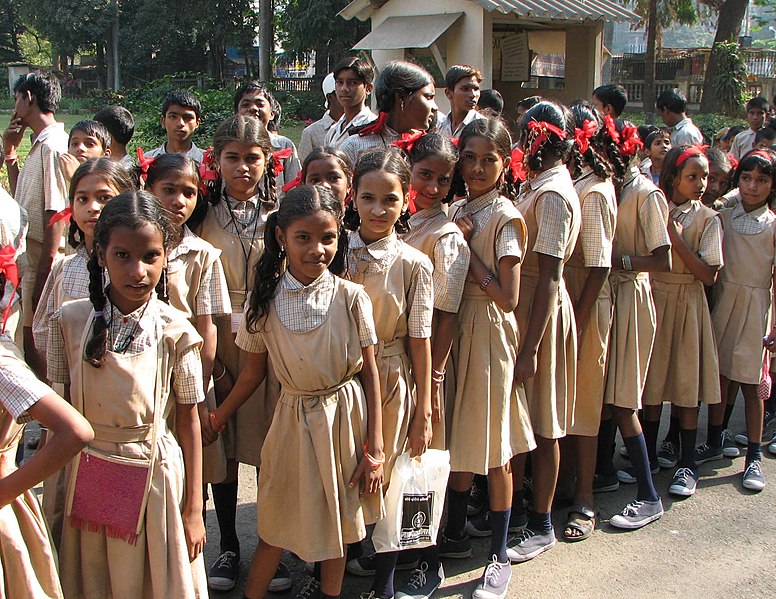 |
| Satara (photographer's real name unavailable) |
Yesterday I read about Dr Bhagwan Pawar, district health officer in the Maharashtra region of Satara, who came up with the idea of an official re-naming ceremony. Officials visited the homes of over 200 local girls with this or similar names (Nakushi, Nakoshi), and asked what they would prefer to be called. Some chose the names of famous actresses they admire, some chose Hindu goddess names, and some chose names with literal positive meanings, "prosperous", "beautiful", or even "rock hard, very tough".
The ceremony was held last Saturday. (Most news coverage has included a beautiful photograph of some of the girls at the ceremony; there's also at least one news video with interviews).
 |
| students in Mumbai, photo by Bernard Gagnon |
Of course this made me think of Hosea's children, the oldest named for a massacre site, the girl named "No Mercy" and the youngest named "Not My People".
My devotional Bible text last night, though, was the story from the Gospel of Luke of a woman crippled for eighteen years by a spirit, so that she was bent over double. Jesus healed her as soon as he saw her, and she stood up straight and began praising God. But the leader of the synagogue was indignant. Indignant. Indignant with Jesus. So what did that religious leader do? He began to harangue the crowd (not Jesus, but the congregation), telling them they could perfectly well come to be cured on a weekday. He was shaming this woman in front of the community, criticizing her in her moment of freedom, beating her back down. But Jesus shut him up. He called him a hypocrite and said,
Ought not this woman, a daughter of Abraham whom Satan bound for eighteen long years, be set free from this bondage on the sabbath day?”
| Satara city, photograph by Mangeshjadhav |
There's so much to think about here, so much to pray about, and this is already a long post. But then, also last night, I read this post by Wanda at KidTrek. She says that 70% of children raised in the church leave it. And she says that one major factor in whether or not churched children keep their faith is whether or not they feel connected to the church community while still a child. And so I want to ask, are the children in your church "Not Our People"? Are any children you know perceiving that they are Unwanted?
[My first source for this news story was a link to USA-Today posted by a Facebook friend. I've since found two Indian newspapers' coverage here and here.]









